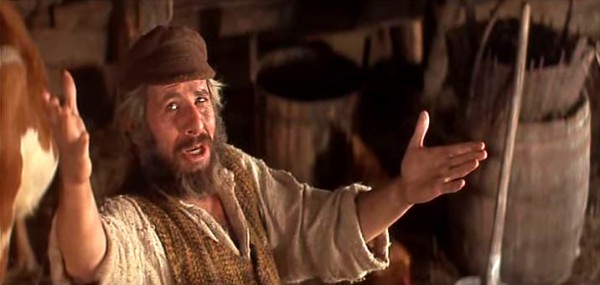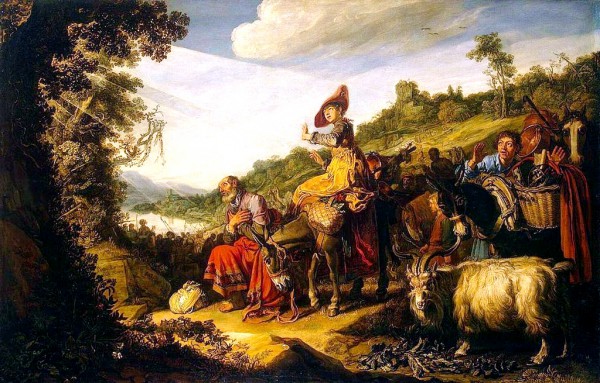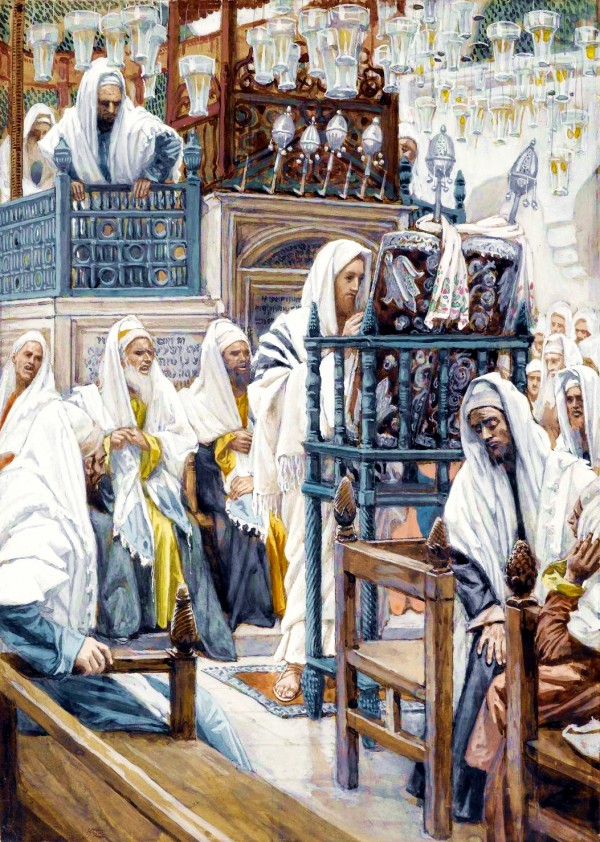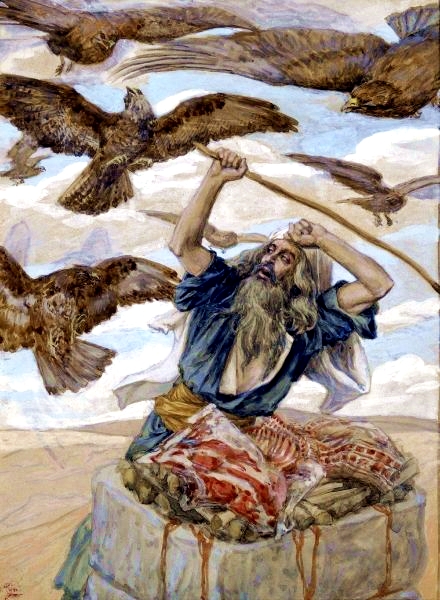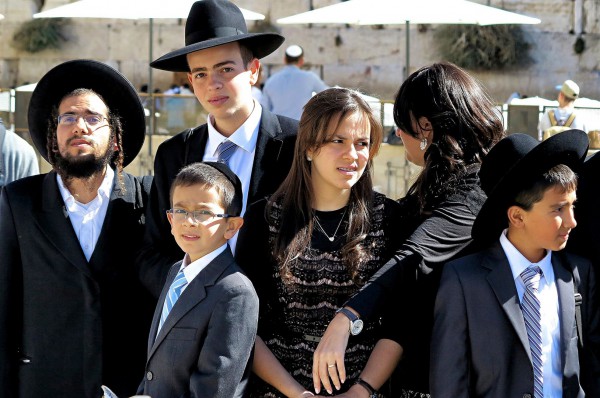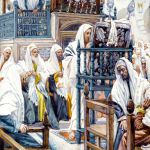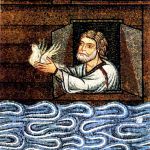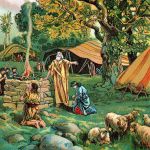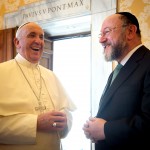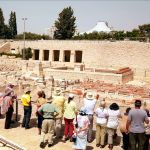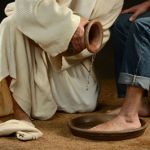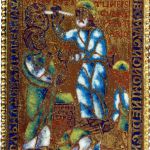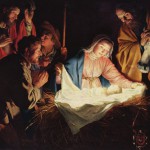“For you are a people holy to the Lord your God. The Lord your God has chosen you out of all the peoples on the face of the earth to be His people, His treasured possession.” (Deuteronomy 7:6)
The Jewish People are often called the Chosen People, a term that has caused many to accuse God of favoritism and the Jews of being smug elitists who think that God prefers them over all other nations and peoples.
“Chosenness” is so strongly associated with favoritism and arrogance that even some Jewish people reject this term. Yet, the idea of God choosing Israel runs throughout Scripture. Here are a few verses:
“But you, Israel, My servant, Jacob, whom I have chosen, you descendants of Abraham My friend.” (Isaiah 41:8)
“You His servants, the descendants of Israel, His chosen ones, the children of Jacob.” (1 Chronicles 16:13; see also Psalm 105:6)
“For the LORD has chosen Jacob to Himself, and Israel for His peculiar treasure.” (Psalm 135:4)
Though the Nazis called it “religious racism,” there is truly no ethnocentric elitism in being among the chosen. Anyone from any background can convert to Judaism and become one of “the Chosen People.”
Contrary to feeling smug and favored, observant Jews are keenly aware that chosenness deflates any sense of significance.
“The closer you are to G-d, the more you sense your insignificance. While being buddy-buddy with a human leader inflates your ego, a relationship with G-d bursts your selfish bubble,” the Chabad website explains. “Because G-d is an infinite being, and all delusions of petty self-importance fall away when you stand before infinity. Being close with G-d demands introspection and self-improvement, not smugness.” (Chabad)
Due to the persecution that the Jewish People have endured because of a perceived elitism, a perhaps more common sentiment to being chosen is expressed best by Tevye in Fiddler on the Roof:
“I know, I know. We are Your chosen people. But, once in a while, can’t You choose someone else?” he asks God.
Understanding God’s choosing of Israel is central to having a firm foundation in God’s providential plan.
Abraham is Chosen
“Abraham will surely become a great and powerful nation, and all nations on earth will be blessed through him. For I have chosen him, so that he will direct his children and his household after him to keep the way of the Lord by doing what is right and just, so that the Lord will bring about for Abraham what he has promised him.” (Genesis 18:18–19)
While we automatically think of Israel and the Jewish People when we hear the term Chosen People, that call actually began with one man—Abraham.
Only 400 years had passed since the Great Flood; the world itself was not yet populated by a great variety of people living in powerful nations. Nations at that time were more like city-states. And they were rife with paganism and polytheism. Mankind was lost.
God called Abraham out of one of those cities to a land that He would show him. Abraham didn’t know where that land was located. He trusted God’s direction and promise that he was to become a nation that would bring the truth of the One True God to the world.
He believed God and headed for the Promised Land.
This was the start of the Chosen People. God chose one man and that one man chose God.
Scripture does not tell us if God called another person before Abraham. It does tell us that Abraham chose to accept God’s promises and put feet to faith.
Why God Chose a People
Within that promise to make Abraham a great nation is a promise to bless the nations that bless the people who descend from Abraham. God goes beyond that, however, promising that all the nations will be blessed through this nation.
God chose to reach out to the entire world by choosing Israel to represent Him, beginning with Abraham.
We see a similar assignment by presidents of nations who choose a group of ambassadors to represent him. With such chosenness comes great responsibility to correctly express the ideas and carry out the plans of the president. But they do not do this solely for the benefit of the president. The president and the ambassadors work together to serve all the people of the land.
Likewise, choosing Israel was not about God favoring one nation over another. It was about manifesting His love to the entire world—and He chose Abraham as His first ambassador to carry out His plan.
God longs to have a relationship with each and every person individually. That is why we were created. The Almighty longs for each of us to know Him.
His plan for communicating His identity to the world and repairing the relationship that was broken in the Garden of Eden would be carried out through Israel. Within the larger scope of Israel, His plan has been at work through many people and events: Moses, the Torah, the Prophets, and in the fullness of time, through Messiah Yeshua.
“For to us a child is born, to us a son is given, and the government will be on His shoulders. And he will be called Wonderful Counselor, Mighty God, Everlasting Father, Prince of Peace.” (Isaiah 9:6)
As God promised Abraham, “I will make you into a great nation, and I will bless you; I will make your name great, and you will be a blessing.” (Genesis 12:2)
Israel became a conduit of God’s blessing to the world and the path for the world to reach God.
A son of Israel, Yeshua, would manifest this blessing further as “a light for revelation to the Gentiles, and the glory of your people Israel.” (Luke 2:32)
Israel reveals the heart of God, as well as the ways and depth of His love; this unique beauty within God’s relationship with Israel draws humankind to Himself.
“This is what the Lord Almighty says: ‘In those days ten people from all languages and nations will take firm hold of one Jew by the hem of his robe and say, “Let us go with you, because we have heard that God is with you.”‘” (Zechariah 8:23)
With His identity forever linked to Israel, God’s reputation is wrapped up in Israel’s destiny.
The Chosen People and the Messiah
Biblically aligned Believers, defined by their personal relationship with Yeshua, understand that “salvation is from the Jews.” (John 4:22)
That salvation would come through the Messiah (Anointed One), for whom the Jewish people have waited for millennia to be revealed.
According to Jewish tradition, a possible messiah is born in every generation—someone who could rebuild the Lord’s Temple, restore Jerusalem, bring back the dispersed exiles to the Land, and set up a just and righteous government to judge between the nations. (Isaiah 11:11–12; Jeremiah 23:8, 30:3; Isaiah 2:2–4, 11:10, 42:1)
Thirteen years ago, the Vatican affirmed this expectant wait of the Jewish People in a 2002 document entitled The Jewish People and the Holy Scriptures in the Christian Bible, written by then-Cardinal Joseph Ratzinger (Pope Benedict XVI, 2005–2013).
The document stated that Catholics should see the Old Testament as “retaining all of its value, not just as literature, but its moral value.” (NYT)
“The expectancy of the Messiah was in the Old Testament, and if the Old Testament keeps its value then it keeps that as a value, too,” said Ratzinger’s spokesman, Joaquín Navarro-Valls.
Although the Jewish People pray daily for the coming of the Messiah as foretold in the Tanakh (Old Testament), Believers know that Israel has already had the privilege of her Messiah’s coming—to Bethlehem, the town to whom Micah prophesied:
“But you, Bethlehem Ephrathah, though you are small among the clans of Judah, out of you will come for me one who will be ruler over Israel, whose origins are from of old, from ancient times.” (Micah 5:2)
Yeshua publicly declared that He was the Anointed One when He read this prophecy from Isaiah:
“The Spirit of the Sovereign LORD is on me, because the LORD has anointed me to proclaim good news to the poor. He has sent me to bind up the brokenhearted, to proclaim freedom for the captives and release from darkness for the prisoners, to proclaim the year of the LORD’s favor.” (Isaiah 61:1–2; Luke 4:18–19)
God’s message of salvation and redemption, which Yeshua taught in His three years of ministry, was directed to the Chosen People, specifically. During Yeshua’s ministry, He was conscious that He “was sent only to the lost sheep of Israel.” (Matthew 15:24)
Yet, Yeshua ministered to all who put their faith in Him as the Messiah. He also instructed His Jewish followers to reach out to all peoples.
“He said to them, ‘Go into all the world and preach the gospel to all creation. He who has believed and has been baptized shall be saved.’” (Mark 16:15–16)
God’s plan of spiritual redemption through Yeshua HaMashiach is available to all who repent and believe that Yeshua released us from sin by His blood (Isaiah 53; Revelation 1:5). Believers now await the second coming of Yeshua when He comes to defend Israel and reign from Jerusalem.
“On that day I will set out to destroy all the nations that attack Jerusalem. And I will pour out on the house of David and the inhabitants of Jerusalem a spirit of grace and supplication. They will look on Me, the one they have pierced, and they will mourn for him as one mourns for an only child, and grieve bitterly for him as one grieves for a firstborn son.” (Zechariah 12:10; see also Isaiah 53:5; Revelation 1:7)
Have the Chosen People Been Replaced?
Yeshua’s labor of love for the House of Israel led to the labors of the first Jewish Believers who spread the message of God’s Kingdom to the Gentiles. That message caused explosive growth in the numbers of Gentile Believers in the first centuries.
Perhaps from a place of superiority, jealousy, or religiosity, members of the Church claimed to be the “true Israel,” evicting God from His established identity as the God of Abraham, Isaac and Jacob.
Their loveless condemnation of the Jewish People for discounting Yeshua as Israel’s Messiah ironically led to the Church discounting God as Israel’s God.
God has not, as some Christians insist, disassociated Israel with His promises or abandoned His covenants with His Chosen People.
He is a covenant-keeping God, true to His word. That is good news because if God would break His unconditional covenants or any of His promises to Israel, He would break them with us as well.
God, however, is not a human who would change His mind.
Those who say God is done with Israel point to the covenant at Mount Sinai when God promised: “If you will indeed obey My voice and keep My covenant, then you shall be My own possession among all the peoples, for all the earth is Mine; and you shall be to Me a kingdom of priests and a holy nation.” (Exodus 19:5–6)
Of course, the Chosen People broke their promise to do everything that God had spoken: “All that the LORD has spoken we will do!” (v. 8)
Therefore, to some people it seems quite obvious that Israel forfeited their right to be a holy nation—except that goes against God’s promise.
God promised that no matter how disobedient Israel became, God would not forget the other covenant that He made with Abraham, Isaac and Jacob.
“In spite of this, when they are in the land of their enemies, I will not reject them or abhor them so as to destroy them completely, breaking my covenant with them. I am the LORD their God. But for their sake I will remember the covenant with their ancestors whom I brought out of Egypt in the sight of the nations to be their God. I am the LORD.” (Leviticus 26:44–45)
The covenant to Abraham was unconditional. No “if … then’s.” In fact, Abraham was asleep when God cut the covenant, so no mutual promise was made by Abraham to do anything to keep the covenant. The promises in the covenant are made by God forever even if Israel breaks His conditional covenants:
“The LORD had said to Abram, “Go from your country, your people and your father’s household to the land I will show you. I will make you into a great nation, and I will bless you; I will make your name great, and you will be a blessing. I will bless those who bless you, and whoever curses you I will curse; and all peoples on earth will be blessed through you.” (Genesis 12:1–3)
Other important promises in the covenant involve ownership of the land and its heirs:
“This one shall not be your heir, but one who will come from your own body shall be your heir. … I am the LORD, who brought you out of Ur of the Chaldeans, to give you this land to inherit it.” (Genesis 15:4, 7; see also Genesis 12:7; 13:14–17; 15:1–21; 17:1–21 and 22:15–18)
No matter what, God assured us that He will keep His covenant that was made with Abraham and continued through Isaac and Jacob.
A Persecuted Chosen People
Israel’s chosenness is also delegitimized through the accusation that the Nation of Israel and the Jews are conspiring to rule the world.
This idea was published in The Protocols of the Elders of Zion during the Russian pogroms of the early 1900s when thousands of Jews were murdered and millions lived in isolated poverty.
In 1935, Dr. Arthur Baumgarten, professor of criminal law at the University of Basel, proved that the book contains 176 passages plagiarized from Maurice Joly’s fictional Dialogues in Hell.
Of course, if God has chosen a people to be His ambassadors and to ultimately bring forth the salvation of all mankind, we can be sure that the enemy of God is working overtime to make God appear to be a liar and to make His people into racists who want to conquer mankind, not save them.
The continual attempts to delegitimize and annihilate the Jewish People throughout history are of supernatural origin although carried out by a great number of people.
The sooner the world will open their hearts wide enough to see that God used Israel to bring monotheism to the world, along with an enduring system of ethics and morals that influences many cultures worldwide, the sooner the nations will understand what a great debt of gratitude they owe the Jewish People.
The world has clearly been impacted through God’s choosing Israel, and continues to be impacted through Yeshua, the Word of God, and the unconditional promise that those who bless Israel will themselves be blessed:
“I will bless those who bless you, and whoever curses you I will curse.” (Genesis 12:3)






